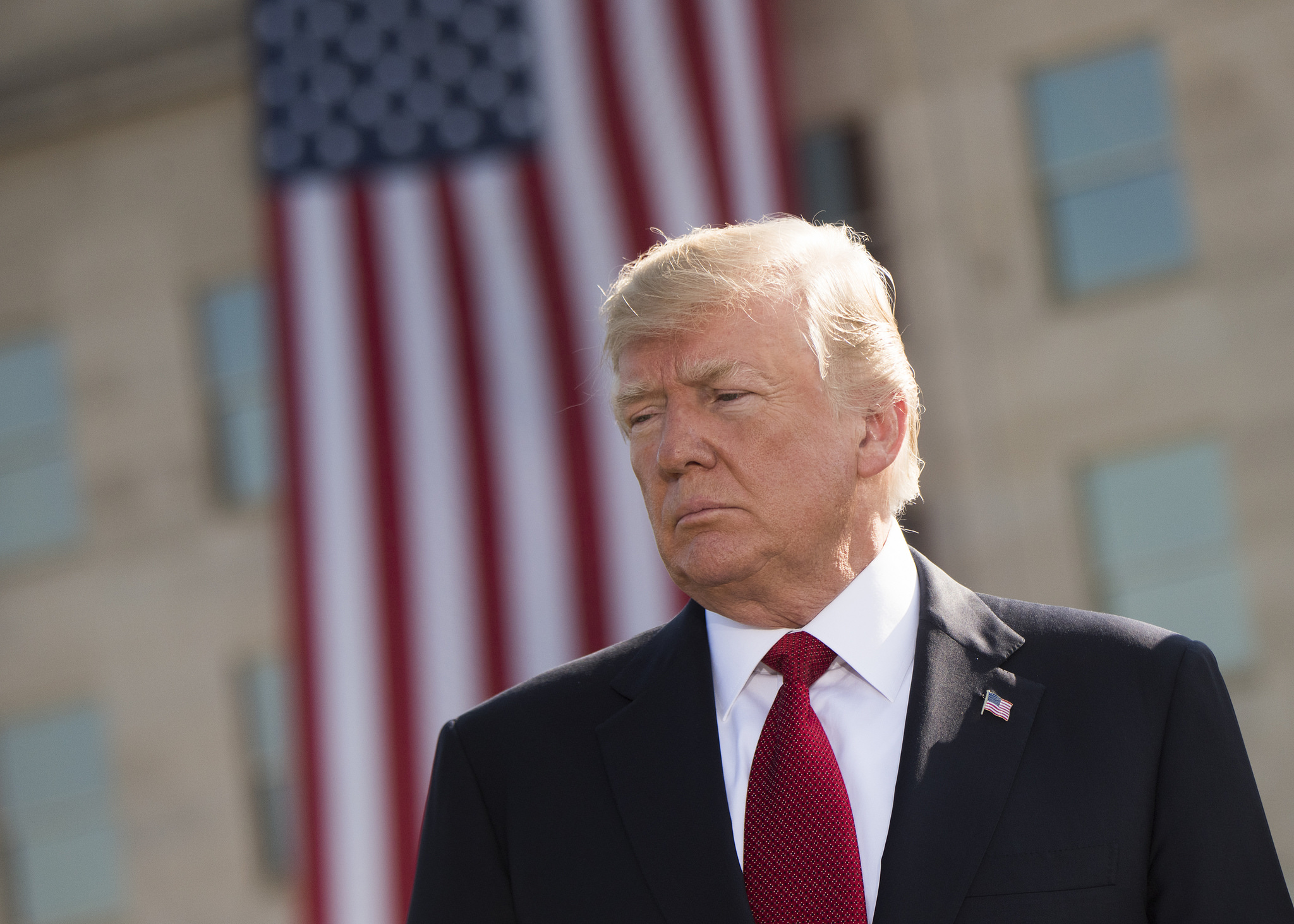Donald Trump has never been that into friends: “They act nice to your face, but underneath they’re out to kill you,” President-to-be Trump wrote of them in Think Big, his 2008 tome about, according to the subtitle, how to make “it” happen in business and in life. “They want your job, they want your house, they want your money, they want your wife.”
According to a in-depth feature story at Politico, this aversion to human closeness is fundamental to The Donald. Reporter Michael Kruse interviewed classmates from the president’s bruising and bejeweled coming of age at New York Military Academy, Fordham University and the University of Pennsylvania, and into his long career in the public eye. The overarching theme of Trump’s social life: he’s consistently kept people at arm’s length. Donald “was and is a lonely man,” a former casino exec told Kruse. In a fundraising email sent three weeks ago and detailed in Kruse’s piece, Trump championed what might be called loneliness. “The fake news keeps saying, ‘President Trump is isolated,'” the email, with the telling subject line “ISOLATED?”, reads. “They say I’m isolated by lobbyists, corporations, grandstanding politicians, and Hollywood. GOOD! I don’t want them.”
Trump has given interviews attesting to much the same over the years: In 1990, television journalist Connie Chung asked Trump if he had anyone he could open up to about things. “I tend not to confide,” Trump said, showing vulnerability he’d later fume about. “I really tend not to confide. I’m very closed in that sense. I think that’s my own, maybe, guarded mechanism … I’m a non-trusting person.”
This lifelong distrust is symptomatic of another popular theory about the psychology of our president— that he exhibits some form of narcissism, if not full-blown narcissistic personality disorder. (One major psychology group, the American Psychoanalytic Association, recently told its members to drop the former industry standard of not speculating publicly about the mental health of public figures.) Last year I spoke with Wendy Behary, a clinical psychologist in New Jersey who specializes in treating narcissists and is also the author of Disarming the Narcissist: Surviving and Thriving With the Self-Absorbed.
You can’t diagnose a president—or anybody else for that matter—at a distance. But you can see patterns of behavior emerge. According to Behary, kids become narcissistic adolescents and adults as an adaption to some trauma or deprivation that they experienced in childhood..Having abusive parents, constant pressure to not just achieve but to be the best, or being paraded around as a showpiece for the family all affect the way you see the world. (As Thrive has noted before, kids instinctively do whatever they can to make their childhoods more survivable.) From these experiences, the narcissists-to-be learn not to trust people, but rather dominate them. “They don’t really have friends,” she explained, “they have followers.”
Behary often hears confessions from narcissistic clients about how they “learned not to need anyone,” or that “they just don’t need people.” This is an outgrowth of walling themselves off from their own needs. They’d been made to felt weak for wanting love and connection as kids, she explained, and that colors everything. “The narcissist will work very hard to become super capable, super autonomous, so they won’t be beholden to anyone, and they won’t need anyone,” she explained.
The need for dominance and fear of intimacy combine for a habit of churning through personal relationships. (“He was so competitive,” a former roommate said of Trump, “that everybody who could come close to him he had to destroy.”) Kruse reports that basically everybody who has been peripherally near Trump has been cast aside over his 71 years. Trump recognizes as much about himself: “Being on the other side of a relationship with someone like me must be difficult,” Trump said in a 1997 interview. “It’s very hard for somebody to be married to me,” he told a biographer in 2014. (In a dishy Vanity Fair profile of the First Lady, she was described as the perfect mate for Trump because, as one friend told the magazine, “she only speaks when spoken to.”)
In her practice, Behary sees these patterns play out in the lives of her clients: spouses grow wise to being manipulated and leave, kids no longer depend on them and become estranged. “The loneliness, the emptiness, the sense of unlovability, the isolation continues,” she said. That’s the dark irony: in late adulthood, where Trump, at 71, certainly is, the narcissist returns to where they were as a kid.
The political operative Roger Stone, one of Trump’s few longtime friends, argued to Kruse that the presidency, because of its gravity and difficulty, is a lonely job for anyone—Lincoln wrote about the loneliness of the gig. But, Kruse asked, might Trump’s self-isolating tendencies be magnified by his role. Would Stone agree? “I think,” he said, “that’s generally true, yes.”


